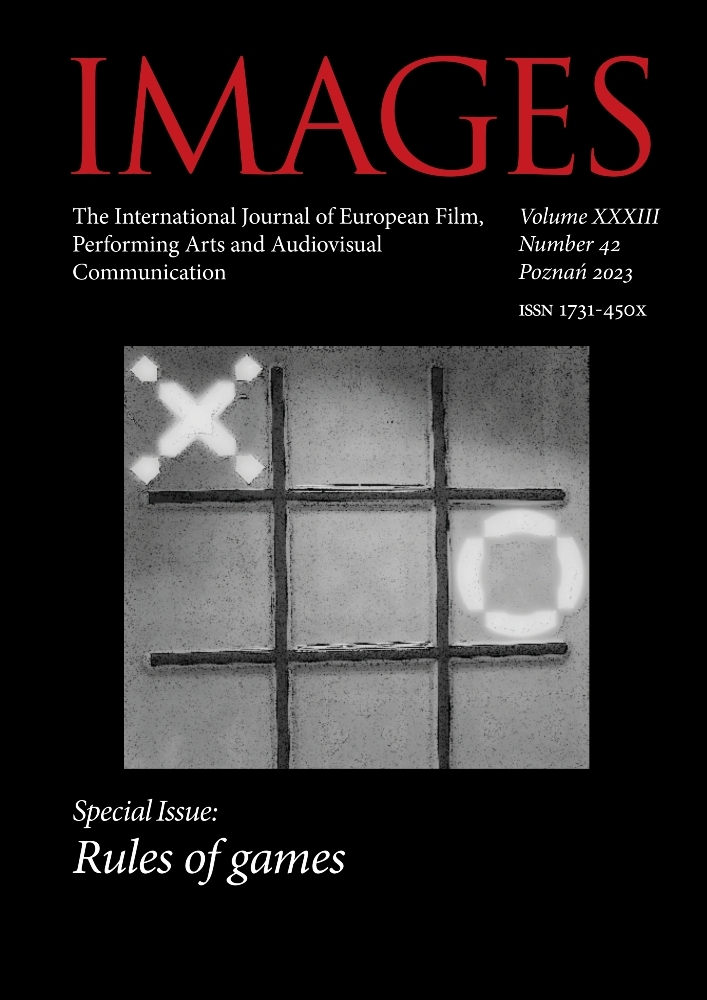Abstrakt
The problem under consideration has its origin in the phenomenon of gameplay, which intersperses the rules and possible freedom of execution. The tensions between habit and surprise, regularity and irregularity created in this way expose the potential that lies in the grammatical conditions of the language use. The phenomenon of redundancy, considered in the context of a language game, can be presented in at least three ways: 1. redundancy as a non-game, 2. redundancy as a game – a struggle, 3. redundancy as a game – cooperation. In the latter approach, the recipient is invited to search for ambiguity, to take pleasure in activating non-obvious orders of literary expression. The article presents two very different examples of how redundancy functions in literary texts - a poem by Krystyna Miłobędzka and a short story by Janusz Rudnicki.
Bibliografia
Abel G., Świat jako znak i interpretacja, translated by W. Małecki, Warszawa 2014
Aitchison J., “Say, Say It Again Sam”: the treatment of repetition in linguistics, “SPELL: Swiss papers in English language and literature” 1994, no. 7, pp. 15–34.
Austin J., How to Do Things with Words, Oxford 1962
Caillois R., Man, Play and Games, translated by M. Barash, Urbana – Chicago 2001
Hockett Ch.F., Review of “The Mathematical Theory of Communication, by C.L. Shannon & W. Weaver”, “Language” 1953, no. 29(1), pp. 69–93. DOI: https://doi.org/10.2307/410457
de Laplace P.S., A Philosophical Essay on Probabilities, New York 1951, https://archive.org/details/philosophicaless00lapl/page/n5/mode/2up (accessed: 27.10.2022)
Malinowski B., The Problem of Meaning in Primitive Languages, [in:] C.K. Ogden, I.A. Richards, The Meaning of Meaning. A Study of the Influence of Language upon Thought and of the Science of Symbolism with Supplementary Essays by B. Malinowski and F.G. Crookshank, London 1923/2000, pp. 451–510
Miłobędzka K., [co ja robię, patrzę w jest], [in:] Zbierane, gubione 1960–2010, Wrocław 2010
Ong W.J., Orality and Literacy. The Technologizing of the Word, London – New York 2002 DOI: https://doi.org/10.4324/9780203426258
Quintilian, Institutio oratoria, 8.3.58, http://www.perseus.tufts.edu/hopper/text?doc=Quint.%20Inst.%208.3&lang=original (accessed: 12.10.2022)
Rudnicki J., Jednoblatówka, [in:] Śmierć czeskiego psa, Warszawa 2009, pp. 36–43
Schopenhauer A., The Art of Controversy, translated by T.B. Saunders, Megaphone eBooks 2008
Shannon C., A Mathematical Theory of Communication, “The Bell System Technical Journal” 1948, no. 27, pp. 379–423, 623–656 DOI: https://doi.org/10.1002/j.1538-7305.1948.tb00917.x
Soin M., Gramatyka i metafizyka. Problem Wittgensteina, Wrocław 2001
Sperber D., Wilson D., Relevance. Communication and Cognition, Oxford – Cambridge 1995
Suits B., Grasshopper: Games, Life and Utopia, Broadview Press 2005 Wittgenstein L., Philosophical Investigations, Oxford 1958, https://static1.squarespace.com/static/54889e73e4b0a2c1f9891289/t/564b61a4e4b04eca59c4d232/1447780772744/Ludwig.Wittgenstein.-.Philosophical.Investigations.pdf (accessed: 25.10.2022)
Wołos M., Koncepcja „gry językowej” Wittgensteina w świetle badań współczesnego językoznawstwa, Kraków 2002
Licencja
Prawa autorskie (c) 2023 Agnieszka Kula, Krzysztof Skibski

Utwór dostępny jest na licencji Creative Commons Uznanie autorstwa 4.0 Międzynarodowe.

